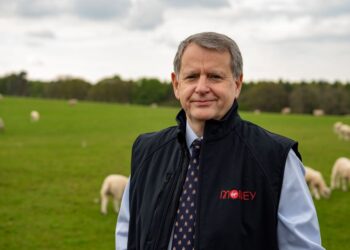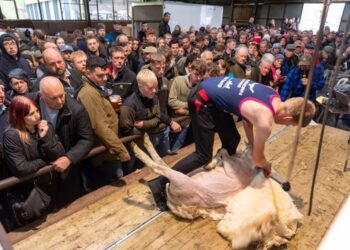The new Environmental Land Management Scheme that will replace current farming support mechanisms is being tested in the Lake District.
The Lake District National Park Authority is working with landowners and farmers in the area to test this new approach to land management to help find the best way forward in delivering public goods.
The authority’s dedicated farming officer Andrea Meanwell has been working on a test and trial in the Keswick area, which will continue until October.
A second test and trial, led by John Bowman of Natural England, is taking place in the Waver Wampool catchment in the north of the county, near the Solway.
Andrea said: “We are working with farmers and land managers to identify what they consider to be the public goods in their area and on their farms, and producing in-depth plans to map this.
“We’re looking at the wide range of assets that Cumbria has and trying to record these.
“It is an important and very interesting project, and could have a positive impact on the future land management schemes in the UK.
“I am hoping to work with 10 farms in detail, between now and October.”
These tests are looking at everything which can be classed as public goods, with and the types of things being considered ranging from nature friendly ways of farming, flood management measures, rights of way for public access, ancient woodlands, native breeds of livestock, plants and soils, including peat, to cultural heritage and the historic environment.
One of those involved in the process has been Keswick hill farmer Will Cockbain, who said: “I welcome the fact the Lake District National Park Authority are carrying out testing for the new scheme and looking at the full range and scope of what constitutes public goods.
“It is vital the new scheme is practical, retains our rural skills base, delivers for the environment and landscape, recognises culture and heritage and contributes to economic sustainability for farm businesses.”
The Lake District test is one of 44 around England, funded by Defra, to shape the future of farming.
The next stage is to launch national pilots late next year, with the hope being the fully adopted schemes will be rolled out in 2024.































